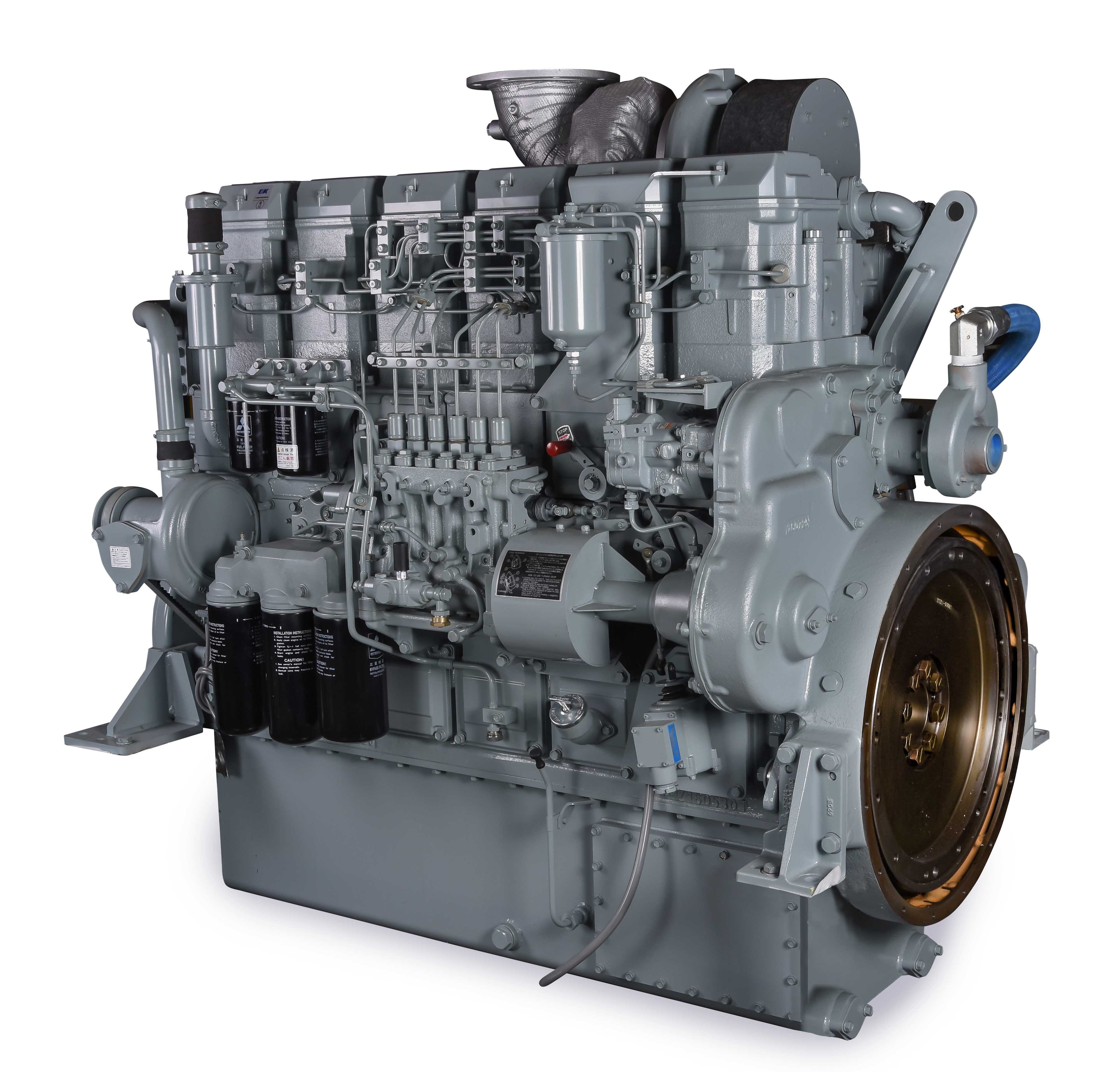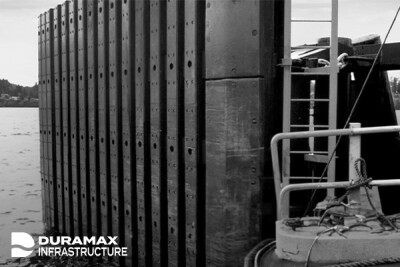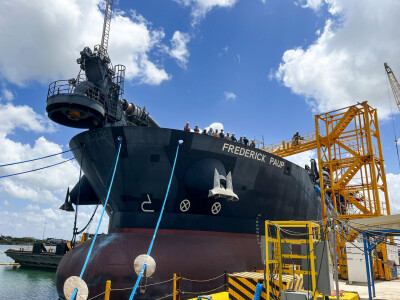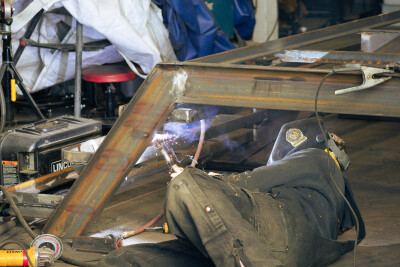What made this Mitsubishi engine the 'perfect fit' to power a new tug?
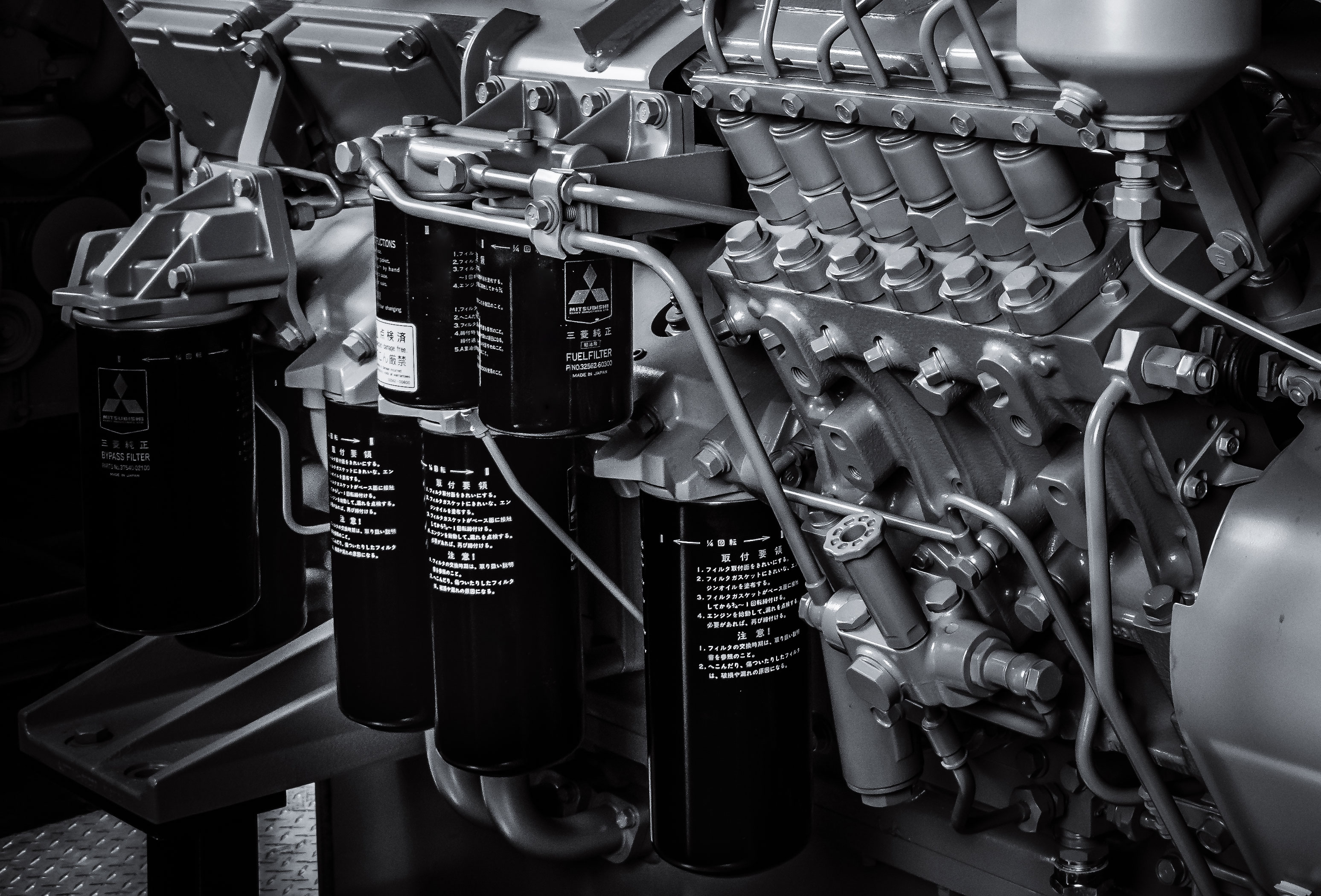
Details associated with how Mitsubishi engines can simply and powerfully be utilized in large-scale boats are readily available, with further insights that show how specific products like the Mitsubishi S6R2-Y3MPTAW stack up against the competition. These distinctions are easy enough to see on paper but do such efficiencies carry over into the real world?
The team at Donjon Marine put that question to the test as the Mitsubishi S6R2-Y3MPTAW engine was their choice to power their new tug. Providing full-service solutions for marine salvage, towing, dredging, heavy-lift, material recycling, and related services means that such decisions impact a variety of tasks that Donjon tug captains and engineers have to deal with on a daily basis. The Mitsubishi S6R2-Y3MPTAW has proven to be a “perfect fit” for them for numerous reasons.
Beyond a Need to Meet Propulsion Needs
Founded in 1964 by J. Arnold Witte, Donjon Marine Co., Inc, has become an industry leader in dredging and marine salvage. The addition of Donjon Shipbuilding & Repair in Erie, Pa., allowed the company to become a provider of multifaceted marine services. Partnering with Smit as a salvage contractor for the US Navy, Donjon has positioned itself at the forefront of the global marine salvage industry by upgrading their fleet through acquisitions, newbuilds, and repowering.
The present and future needs of the fleet and organization are top of mind for Capt. William J. Sullivan, manager of regulatory compliance and vessel repair at Donjon, especially when it comes to newship builds. Engines are obviously a top consideration for these projects but choosing one solution over another to meet their propulsion needs isn’t about a single feature or requirement. Rather, it’s about considering how such features and needs will be addressed on a much bigger scale.
“In today’s regulatory environment, there are many factors to consider when deciding on propulsion needs,” Sullivan said. “It often requires one to work backward from the desired end result. In other words, if you know your desired bollard pull, what mix of vessel size and propulsion can get you there? What are the latest environmental restrictions for engine emissions? Considering current fuel prices, are the engines efficient? Does the engine manufacturer have a reputation for reliability? Although there are many variables that determine our solution for propulsion, some of the more important factors to consider are answered by these questions.”
Those questions compelled the Donjon team to specifically explore the larger displacement rates, low compression ratios, and minimal stress of Mitsubishi engines. After doing so, they determined that Mitsubishi engines were the best solution for powering their new tug. Their decision has made a real difference for Donjon tug captains and engineers, underscoring the importance of both these initial considerations and ultimate decisions. It’s a difference that is felt on every side.
“Mitsubishi is excited about this project and the growing popularity of the S6R2 in both twin screw and triple screw applications,” said Rodrigo Teixeira, marine manager, at Mitsubishi.
Performance, Feedback and Fit
To say that there are a variety of powerful and capable engines in the market is an understatement. Companies that are essentially household names produce engines that are powering entire fleets, meaning that such products can meet the baseline needs of various commercial marine vessels. As ever, the devil is in the details, which is something the actual users at Donjon can attest to on multiple levels.
“Our tug captains and engineers have expressed their happiness with the performance of the Mitsubishi engines in comparison to other similar powerplants,” Sullivan explained. “Confidence in the engine’s reliability has been noted repeatedly as the vessel has been deemed a workhorse. We knew we needed an engine that could meet our horsepower needs while having a small footprint and manageable weight. That’s what made the S6R2-Y3MPTAW engine a perfect fit for us, which the feedback we’ve gotten has further confirmed.”
That fit for Donjon is ultimately based on the fact that mechanical Mitsubishi diesel engines provide larger displacement rates, lower compression ratios, and minimal stress on its components. However, the specific fit with the needs of Donjon captains and engineers highlights what it can mean for an engine to be this kind of “perfect fit,” which is something that commercial engine distributor companies can further support.
“It was a pleasure working with Donjon on this Triple Screw 2400hp tug,” said Trace Laborde Vice President of Sales at Laborde Products. “After our analysis of the application as well as displacement, bollard pull, and longevity. We came to the conclusion that the Mitsubishi S6R2 was the best engine for this project.”
Selecting the best engine is one of the most important decisions that a vessel owner can make, underscoring why considerations for everything from output to displacement to weight are so important to consider. The capabilities of the Mitsubishi S6R2-Y3MPTAW made that an easy choice for Donjon but will that be as much of an easy choice for other commercial marine vessel stakeholders?
Ultimately, the appeal of the Mitsubishi S6R2-Y3MPTAW comes down to how it is a simple yet powerful and easy-to-maintain engine. When stacked up against other 800 horsepower engines, the S6R2-Y3MPTAW can work harder with less strain but can it also address the countless propulsion factors that Sullivan mentioned every vessel stakeholder must consider? Those answers can only be assessed as part of the process that everyone making such decisions needs to go through, underscoring the need for and importance of both asking and answering such questions.
Learn more about the Mitsubishi S6R2-Y3MPTAW
What are some of the biggest mistakes you can make when repowering a vessel? Find out more if you're considering a repower, a replacement, or an upgrade




